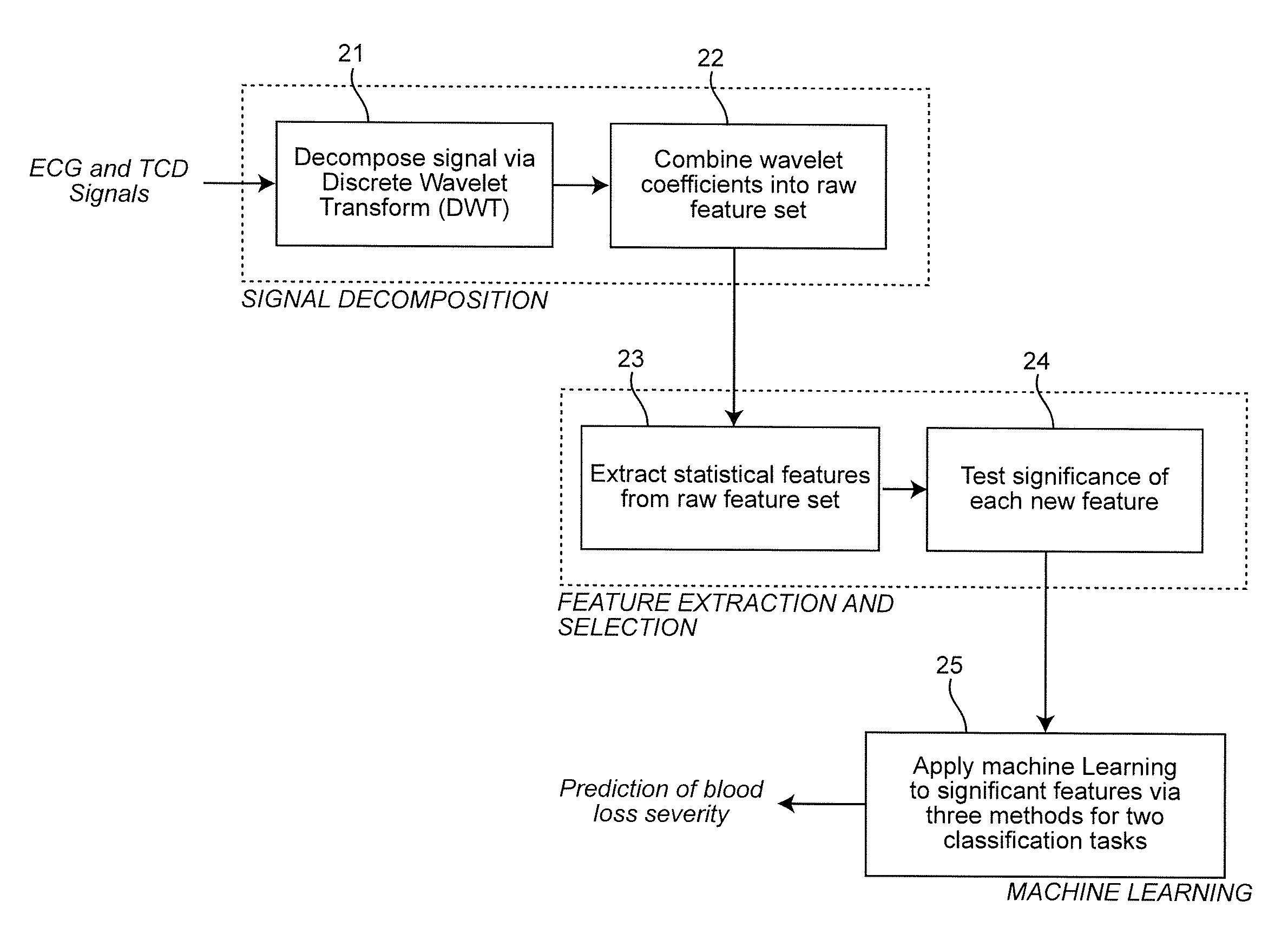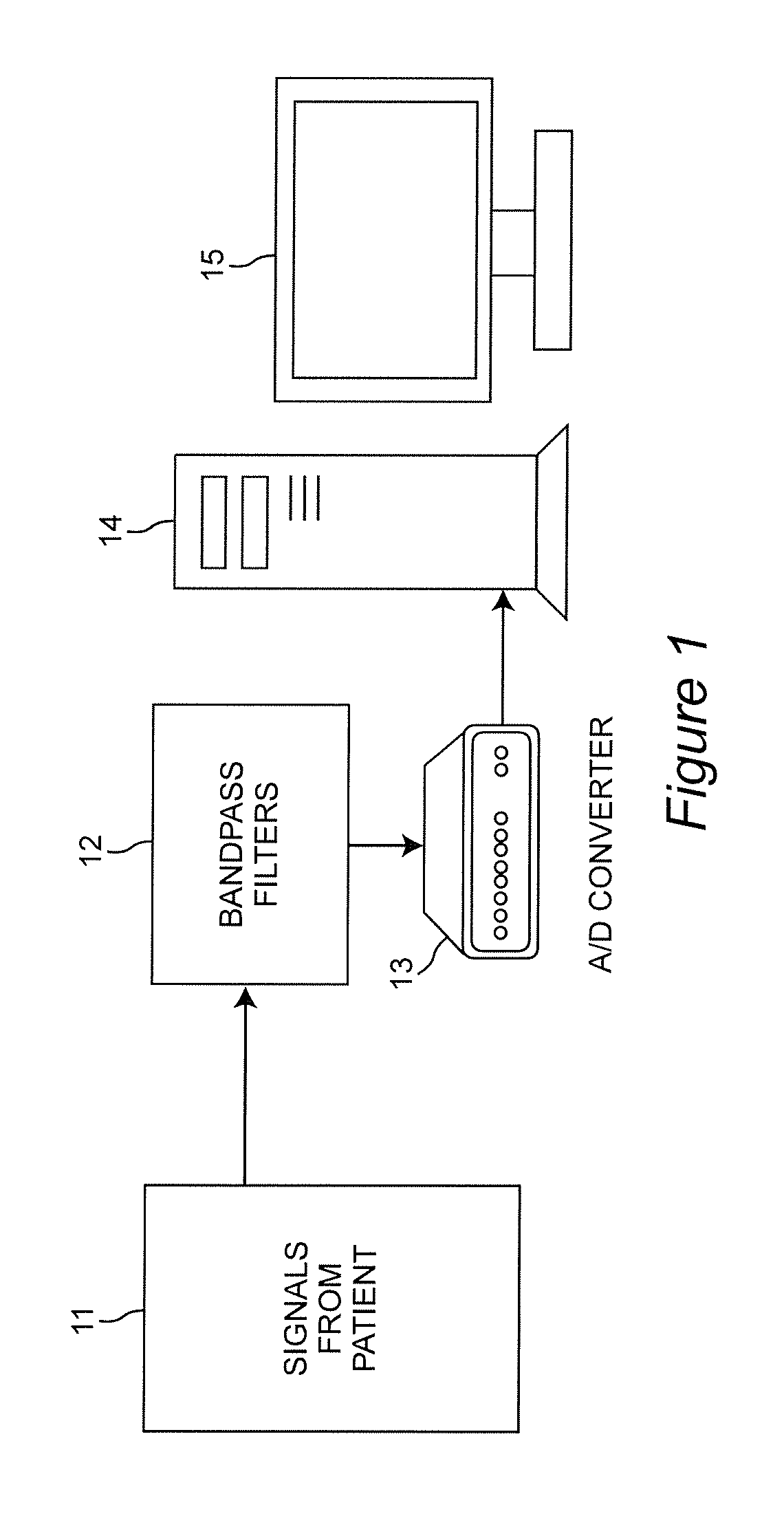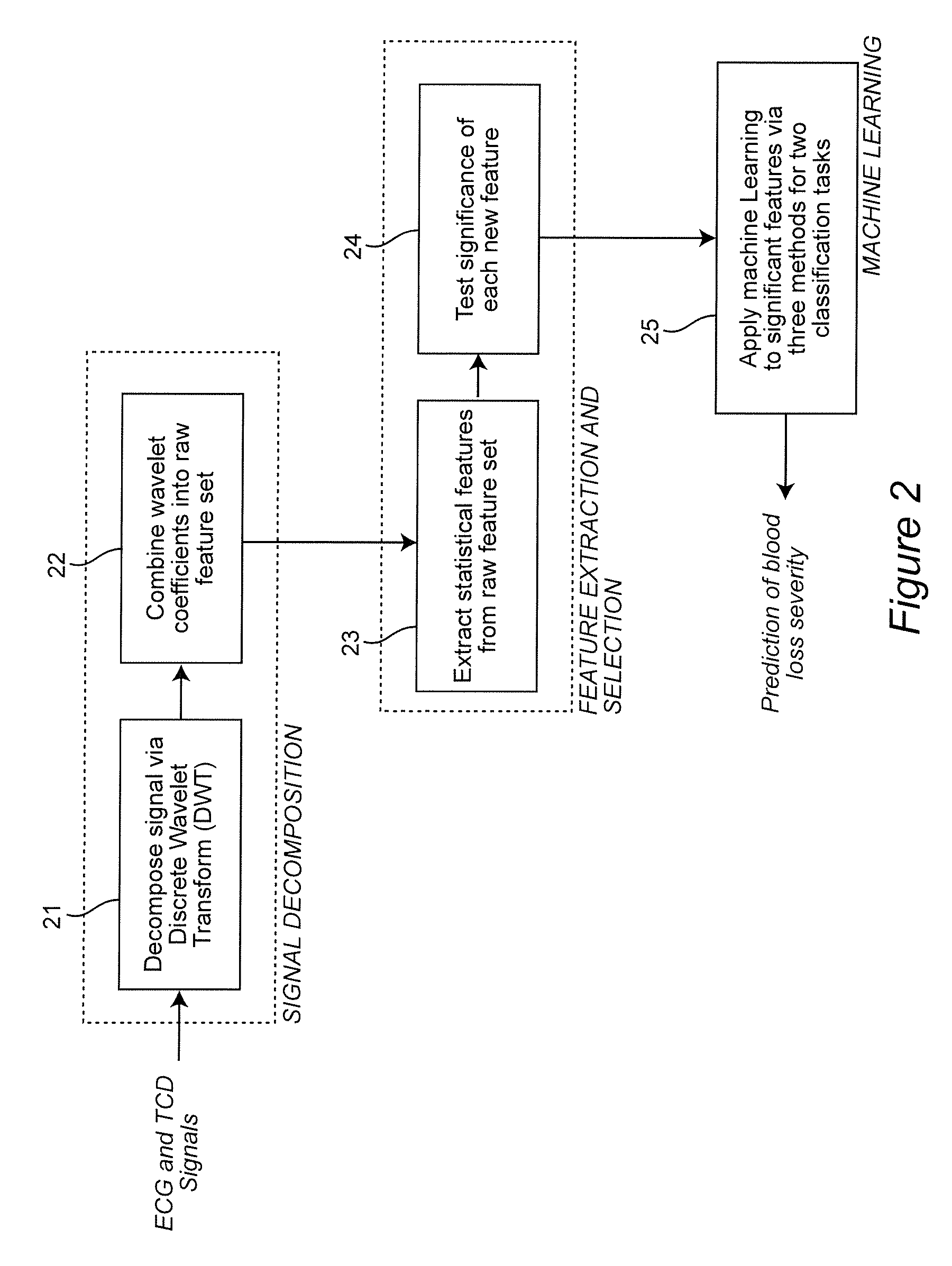Combining predictive capabilities of Transcranial Doppler (TCD) with Electrocardiogram (ECG) to predict hemorrhagic shock
a technology of transcranial doppler and predictive capability, which is applied in the direction of instruments, diagnostic recording/measuring, ultrasonic/sonic/infrasonic diagnostics, etc., can solve the problems of insufficient early estimation of hemorrhagic, unreliability of blood pressure and heart rate, and inability of ft to help to extract time information, etc., to achieve the effect of maximizing the survival ra
- Summary
- Abstract
- Description
- Claims
- Application Information
AI Technical Summary
Benefits of technology
Problems solved by technology
Method used
Image
Examples
Embodiment Construction
[0024]An embodiment of the invention is described in terms of a system on which the methods of the invention may be implemented. The system is composed of various signal processing components, databases and computational interfaces that one of ordinary skill in the computational and signal processing arts will be familiar with. The methods of the invention are described with reference to flowcharts which illustrate the logic of the processes implemented. The flowcharts and the accompanying descriptions are sufficient for one of ordinary skill in the computer programming, signal processing and image processing arts to prepare the necessary code to implement the embodiment of the invention.
[0025]Referring to the drawings, and more particularly to FIG. 1, there is shown a decision-support system on which the embodiment of the invention may be implemented. Signals from the patient are generated at 11. These signals include in one application Electrocardiogram (ECG) signals and Transcran...
PUM
 Login to View More
Login to View More Abstract
Description
Claims
Application Information
 Login to View More
Login to View More - R&D
- Intellectual Property
- Life Sciences
- Materials
- Tech Scout
- Unparalleled Data Quality
- Higher Quality Content
- 60% Fewer Hallucinations
Browse by: Latest US Patents, China's latest patents, Technical Efficacy Thesaurus, Application Domain, Technology Topic, Popular Technical Reports.
© 2025 PatSnap. All rights reserved.Legal|Privacy policy|Modern Slavery Act Transparency Statement|Sitemap|About US| Contact US: help@patsnap.com



